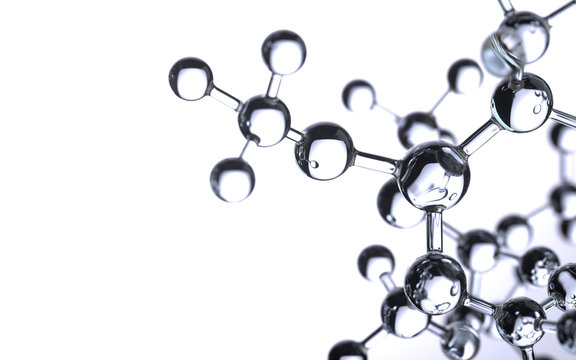Welcome to the fourth feature in this series where we delve into the subjects. Read more about the previous three here: https://macleansnews.com/category/columns/
Chemistry is well known for being challenging, particularly in advanced areas such as organics. Despite its interesting constants and laws, many students have a love-hate relationship with the subject. It can be quite easy to see why someone would think that way. What do you mean that a mole is a unit of measurement? What do you mean that this quasi-octopus-looking molecule is meant to exist? See fig. 1.
Despite all of these tribulations, chemistry can be an extremely rewarding subject, especially in conjunction with biology or physics, and serves as a useful tool for future career options as well as a holistic understanding of the world around us.
Fig 1 (it’s hexachlorobenzene, by the way)
So what is chemistry?
In junior years, we learn that chemistry is the study of matter and the reactions that matter undergoes around us. It’s often known as the “central science” as it bridges natural sciences such as physics and biology, as there are areas of overlap such as biochemistry and thermodynamics, forces between atoms and molecules and quantum chemistry.
However, chemistry more closely explores the properties of matter, composition and behaviour of substances, from simple atoms and molecules to large and complex organic molecules.
At its core, chemistry is known as the composition of matter and how atoms bond, react and undergo changes. It’s hard to believe that only 118 elements make up every single thing in the universe.
Our understanding of chemistry as we know it today, has evolved over hundreds of years. From medieval alchemists trying to find the “elixir of life” to the development of atomic theory by John Dalton, the periodic table by Dimitri Mendeleev and pioneering research on radioactivity by Marie Curie, our understanding of the chemical world continues to evolve with advances in the scientific field and will continue to shape the future.
Why Study Chemistry?
Studying chemistry in college offers both career and skill-based incentives. It offers you the critical thinking skills required to solve questions and calculate precise concentrations of substances, the prediction skills in knowing what will and what won’t react and the ability to approach problems methodically.
Chemistry provides you with a deeper understanding of the world and answers to your biggest questions (Why does water expand when frozen? Why is LiAlH4 a reducing agent?). But jokes aside, chemistry gives you an understanding of why natural phenomena occur.
For students interested in pursuing STEM careers such as working in the pharmaceutical industry, medical field, forensics and research. It provides a crucial foundation for advanced studies.
Within the classroom;
Here is a preview of the topics covered by both curricula and MCERT:
MCERT Year 11 Chemistry
- Chemistry in everyday life
- Bonding and real-world applications
- Acids, bases and titrations
- Rates of reaction
- Organic chemistry
NCEA Level 2 and Level 3 Chemistry
- Organic chemistry
- Qualitative analysis
- Oxidation-reduction reactions
- Bonding, structure and energy
- Thermochemistry
- Equilibrium principles
Cambridge AS and A-Level Chemistry Curriculum
- Organic chemistry
- Rates of reactions
- Enthalpy changes
- Periodicity
- Polymerisation
- Organic synthesis
A plethora of related opportunities are offered at Macleans, for example; chemistry olympiads, science fairs, scholarships and so much more. All experiences which will deepen your understanding and love for chemistry.
Chemistry is far from just being comprised of difficult theory and equations. Instead, it is a tool that is used to gain a deeper understanding of what happens around us, the basic understanding of many scientific principles. So go ahead and participate in one of those opportunities offered right here at school, talk to your teacher if you’re interested in studying chemistry next year and maybe even pick up that textbook on organic chemistry!
Friday 23rd August, 2024
Written by Amelia Hu, edited by Emma Li









